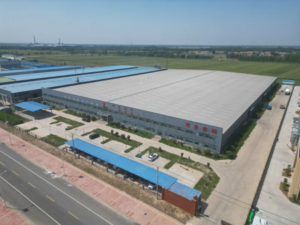Characteristics and Applications of PP Boards
Polypropylene (PP) boards are known for their versatile properties, making them a preferred material across various industries. Below is a detailed overview of their characteristics,
Key Characteristics of PP Boards
PP boards exhibit the following exceptional features:
- Lightweight and Uniform Thickness: Facilitates easy handling and consistent performance in applications.
- Smooth and Flat Surface: Provides an aesthetically pleasing finish suitable for decorative and functional uses.
- High Heat Resistance: Maintains structural integrity at temperatures up to 100°C.
- Superior Mechanical Strength: Ensures durability under mechanical stress.
- Excellent Chemical Stability and Electrical Insulation: Resistant to corrosion and ideal for electrical applications.
- Non-Toxic and Safe: Meets stringent safety and environmental standards.
- Ease of Processing: Can be easily cut, welded, and shaped without risk of damage, offering excellent machinability.
- High-Quality Output: Produces durable and reliable plastic products with consistent quality.
Applications of PP Boards
PP boards are widely utilized in diverse sectors due to their adaptability and robust properties:
- Chemical Industry: Used in chemical containers and acid/alkali-resistant equipment.
- Environmental Protection: Integral to wastewater treatment, exhaust gas emission systems, and scrubber towers.
- Electronics and Appliances: Provides insulation and structural components for electronic devices.
- Food Packaging: Safe for food contact due to its non-toxic nature.
- Pharmaceuticals: Employed in medical equipment and sterile environments.
- Decorative Applications: Applied in interior design and architectural elements.
- Water Treatment: A preferred material for manufacturing plastic water tanks.
- Industrial Applications: Thick PP boards are used for stamping plates, punch press pads, and equipment in clean rooms, semiconductor plants, and other industrial settings.
Chemical and Physical Properties of PP Boards
PP is a semi-crystalline thermoplastic with distinct chemical and physical characteristics:
- Material Composition:
- PP is harder and has a higher melting point than polyethylene (PE).
- Homopolymer PP becomes brittle at temperatures above 0°C. To address this, commercial PP materials are often random copolymers with 1–4% ethylene or clamp-segment copolymers with higher ethylene content.
- Copolymer PP exhibits:
- Lower heat distortion temperature (approximately 100°C).
- Reduced transparency, gloss, and rigidity.
- Enhanced impact strength, which increases with higher ethylene content.
- Thermal Properties:
- Vicat softening temperature: 150°C.
- Maximum practical operating temperature: 100°C.
- Mechanical Properties:
- High crystallinity results in excellent surface hardness and scratch resistance.
- PP does not suffer from environmental stress cracking.
- Shrinkage rate is relatively high (1.8–2.5%), but directional uniformity is superior to materials like HDPE.
- Adding 30% glass fiber reduces shrinkage to approximately 0.7%.
- Modification Techniques:
- PP is often modified with glass fibers, metal additives, or thermoplastic rubber to enhance properties.
- Melt Flow Rate (MFR) ranges from 1 to 40. Lower MFR materials offer better impact resistance but lower tensile strength. Copolymers generally have higher strength than homopolymers for the same MFR.
- Chemical Resistance:
- Both homopolymer and copolymer PP exhibit excellent resistance to moisture, acids, alkalis, and dissolution.
- PP is not resistant to aromatic hydrocarbons (e.g., benzene) or chlorinated hydrocarbons (e.g., carbon tetrachloride).
- Unlike PE, PP lacks oxidation resistance at high temperatures.
Summary
PP boards, whether homopolymer or copolymer, offer outstanding resistance to moisture, corrosion, and dissolution, making them a versatile choice for numerous applications. Their lightweight nature, ease of processing, and ability to withstand harsh chemical and thermal environments ensure high-quality performance in industries ranging from chemical processing to food packaging. With excellent mechanical strength and environmental compliance, PP boards are an ideal material for manufacturing durable, reliable, and eco-friendly plastic products.
For further inquiries about PP boards or customized solutions, please contact your supplier to explore their full potential for your specific needs.
Bulk & Project Supply
- Custom options: thickness, size, color, cut-to-size and CNC machining (by request)
- Quality: stable batches, dimensional checks and surface inspection (records available)
- Packing: film protection, pallet/crate packing, export marking
Get a Factory Quote
Send your material, thickness, sheet size / drawing, quantity and destination. We will reply with MOQ, lead time and a factory quotation.


